
American Institute of Architects (AIA)
Course Number/ID: AEC1403-01:1
Approval ID: AEC1403-01:1
AIA/CES Learning units:
1
AIA approved course. This course qualifies for 1.0 LU/HSW Hour.
AEC Daily reports Learning Units on members' behalf.

Health, Safety, and Welfare (HSW)
Course Number/ID: AEC1403
Approval ID: AEC1403
Hours:
1
This course qualifies for HSW.
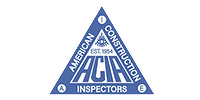
American Construction Inspectors Association (ACIA)
Course Number/ID: AEC1403
Approval ID: AEC1403
Credits:
1
This course is approved for ACIA RCI CEUs. This course qualifies for HSW.
ACIA members self-report to ACIA by submitting their certificate of completion to ACIA for RCI renewal.
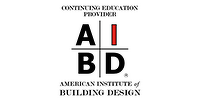
American Institute of Building Design (AIBD)
Course Number/ID: AEC1403
Approval ID: AEC1403
CE Hours:
1
AIBD approved course. This course qualifies for HSW.
AEC Daily reports Learning Units on members’ behalf.

American Institute of Constructors (AIC)
Course Number/ID: AEC1403
Approval ID: AEC1403
CPD Hours:
1
AIC approved course.
Hours must be self-reported to the AIC.
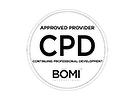
Building Owners and Managers Institute - Continuing Professional Development (BOMI CPD)
Course Number/ID: AEC1403
Approval ID: AEC1403
CPD Hours:
1
BOMI approved course. This program qualifies for BOMI Institute Continuing Professional Development (CPD) credit for RPA, FMA, and/or SMA graduates. This course qualifies for HSW.
Members must self-report CPD hours.
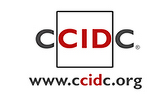
California Council for Interior Design Certification (CCIDC)
Course Number/ID: AEC1403
Approval ID: AEC1403
CE Hours:
1
CCIDC approved course. This course qualifies for HSW.
Members must self-report CEU hours to CCIDC.

Florida Board of Professional Engineers (FBPE)
Course Number/ID: AEC1403
Approval ID: AEC1403
Provider Number: 0004278, Sequence Number 0000031
PDHs:
1
FBPE approved provider.

International Code Council (ICC)
Course Number/ID: AEC1403-01:1
Approval ID: 10099
Provider Number: 1293
CEU:
0.1
AEC Daily is an ICC Preferred Provider. This course qualifies for ICC Certification Renewal.
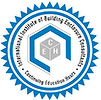
International Institute of Building Enclosure Consultants (IIBEC)
Course Number/ID: AEC1403
Approval ID: AEC1403
CEHs:
1
This course qualifies for HSW.
This course is approved for IIBEC CEHs. Users are to self-report to IIBEC by submitting their certificate of completion to IIBEC.
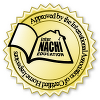
The International Association of Certified Home Inspectors (InterNACHI)
Course Number/ID: AEC1403
Approval ID: AEC1403
CE Hours:
1
InterNACHI approved course. This course qualifies for HSW.
Members must self-report CE hours to InterNACHI.
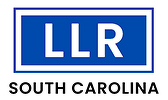
South Carolina Department of Labor Licensing and Regulation (LLR)
Course Number/ID: AEC1403-01:1
Approval ID: 2027-27-04
CEUs:
1
This course is approved by the South Carolina Department of Labor Licensing and Regulation.
Members must self-report.

The Louisiana State Board of Architectural Examiners (LSBAE)
Course Number/ID: AEC1403
Approval ID: AEC1403
Hours:
1
LSBAE approved course.
Credit hours will be reported through cebroker.com

National Association of Home Builders (NAHB)
Course Number/ID: AEC1403
Approval ID: AEC1403
CE Hours:
1
This program meets NAHB's continuing education requirements for one or more of the following designations: Certified Graduate Associate (CGA), Certified Graduate Builder (CGB), Certified Graduate Remodeler (CGR), Certified Green Professional (CGP), Graduate Master Builder (GMB), Graduate Master Remodeler (GMR), Certified Aging-In-Place Specialist (CAPS)
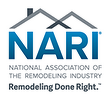
National Association of the Remodeling Industry (NARI)
Course Number/ID: AEC1403
Approval ID: AEC1403
CEUs:
0.1
NARI approved course.
0.1 CEU toward certification renewals. 1 Hour toward certification application.
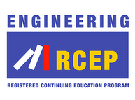
Registered Continuing Education Program (RCEP)
Course Number/ID: AEC1403
Approval ID: AEC1403
PDH:
1
AEC Daily is an RCEP-approved continuing education provider.
Credit earned on completion of this program will be reported to RCEP.
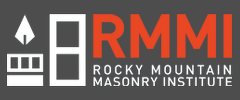
Rocky Mountain Masonry Institute (RMMI)
Course Number/ID: AEC1403
Approval ID: AEC1403
Credit Per Hour:
0.1
This is a RMMI approved course.
RMMI will confirm certification credit upon receipt of Certificate of Completion (members must self-report).

The Alberta Association of Architects (AAA)
Course Number/ID: AEC1403
Approval ID: AEC1403
Provider No.: A-002
Learning hours:
1
This course is approved as a Structured Course.
AAA Members must self-report their learning hours to AAA.

Architects' Association of New Brunswick (AANB)
Course Number/ID: AEC1403-01:1
Approval ID: AEC1403-01:1
Learning Hours:
1
This course may qualify for either core/structured or self-directed/non-structured learning hours.

Architects Association of Prince Edward Island (AAPEI)
Course Number/ID: AEC1403
Approval ID: AEC1403
Learning hours:
1
This course is approved as a Core Learning Activity.
Members must self-record their learning hours on the RAIC|Architecture Canada Transcript Database, https://raic.org/transcripts.
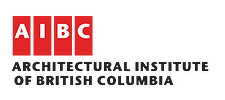
Architectural Institute of British Columbia (AIBC)
Course Number/ID: AEC1403
Approval ID: AEC1403
Learning units:
1
AIBC members may self-report this learning activity for consideration of AIBC learning units.
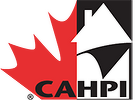
Canadian Association of Home and Property Inspectors (CAHPI)
Course Number/ID: AEC1403
Approval ID: AEC1403
MRC Hours
1
CAHPI approved course, MRC Hours.
Members must self-report MRC hours to CAHPI.

Construction Specifications Canada (CSC)
Course Number/ID: AEC1403
Approval ID: AEC1403
PDE Hours:
1
CSC approved course. This course qualifies for HSW.
Members must self-report PDE hours to CSC.
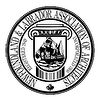
Newfoundland & Labrador Association of Architects (NLAA)
Course Number/ID: AEC1403
Approval ID: AEC1403
Learning units:
1
This course is approved as a core course.
Members must self-report LUs through the MCET National Con Ed reporting website. (www.architranscripts.ca/default.htm)
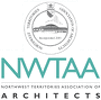
Northwest Territories Association of Architects (NWTAA)
Course Number/ID: AEC1403
Approval ID: AEC1403
Learning Hours:
1
This course is approved as a Structured course.
Members must self-report Learning Hours through the National Con Ed reporting website at https://www.raic.org/transcripts/default.htm

The Nova Scotia Association of Architects (NSAA)
Course Number/ID: AEC1403-01:1
Approval ID: AEC1403-01:1
Learning Hours:
1
This course may qualify as a Core/Structured Activity.

Ontario Association of Architects (OAA)
Course Number/ID: AEC1403
Approval ID: AEC1403
Hours:
1
This course may apply to both OAA structured and unstructured learning as long as it addresses the required subject matter topics.
Members must self-report activity to OAA and retain your Certificate of Completion.

Ordre des architectes du Québec (OAQ)
Course Number/ID: AEC1403 / Cours # AEC1403
Approval ID: AEC1403 / Cours # AEC1403
Hours / Nombre d’heures:
1
This course qualifies for self-directed learning activity with the OAQ. / Ce cours est reconnu par l’OAQ comme activité d’auto-apprentissage.
Members must self-report hours to OAQ. / Les membres doivent rapporter eux-mêmes leurs heures à l'OAQ.

Saskatchewan Association of Architects (SAA)
Course Number/ID: AEC1403
Approval ID: AEC1403
Provider No.: 1036
Learning units:
1
This course is approved as a core course.
Members must self-report LUs through the RAIC National Con Ed reporting website. http://raic.org/transcripts.

